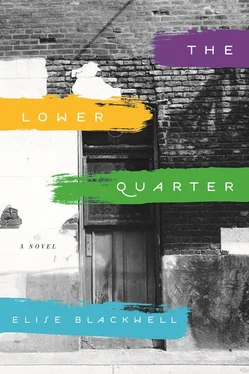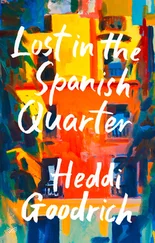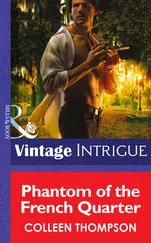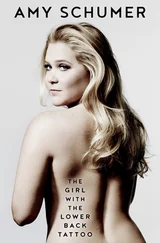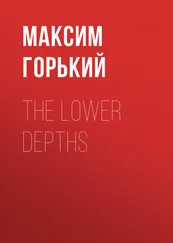“We were overseas, you see, and simply couldn’t return in time,” the woman said over and over as though seeking absolution for allowing harm to come to her work.
Finally they left, taking a few of the drawings and one painting — those that Johanna had finished with, having either restored them fully or done as much as she could without causing further damage. She understood well that what artists want out of a restorer is not the same as what the owner of a painting by another hand wants and so had left certain things alone.
Back upstairs, Johanna’s painting sat on the floor, tilted against the sofa. It struck her that the angle was the same as the day she had seen the painting for the second time, leaning against a wall in Ladislav’s office the day she had left with Clay. Though she hadn’t been sure what her future would be, she had gone with him, because different was more likely to be better than not. She’d talked to girls who had known worse, but it was hard for her to believe that her own situation could be a series of falls with no recovered altitude at all.
There was also this: Clay himself. She had hated and feared him more than any of the others since the first, but he had changed in a moment. He was genuinely horrified at what he’d done, this she believed, and whatever he felt for her — warped as it surely was — cut him deeply. His father, he had told her, could arrange papers, and he could get her out of Belgium. She didn’t have to ask him why he would help her; she knew it was penance. At the same time, she knew he would not have gone so far had she not been beautiful, that her beauty made her more tragic in the eyes of men, because, when it came down to it, it was always their loss and not hers that concerned them most. She did not understand what or why, but Clay had lost something. What he had done to her had come at some personal cost, one that he could repay to himself only through her.
As Ladislav and Clay traded insults in two directions and money in one, Johanna lifted the small painting leaning against the desk and worked it into her duffel bag, which otherwise contained only a few dresses, a hairbrush, a toothbrush, and a pair of high-heeled sandals. The pine-scented incense Ladislav was obsessed with burned in a holder on the desk, and she was conscious that it would be the last time she would ever have to smell the smoke that Ladislav believed contributed to his house’s reputation for cleanliness. Though she had taken the painting in plain view, neither man had noticed as they haggled over her passport, a negotiation that Clay finally won by producing more money.
She saw now that the unlikely presence of the painting had been more than auspicious; it had been predictive: She would clean the painting she had so badly wanted to clean the first time she had seen it. And the desire, carried out properly, had led her to everything she now had: her vocation, her place, her fictional history.
On the day she first saw the painting, she decided to become a new person. On the day she took it, she started to become one. And now that work had been completed. Again she wrapped the painting and put it out of sight. Someday she would be able to hang it
. Eli
After standing in front of the Hotel Richelieu for ten minutes and seeing only one cab, whose driver ignored him, Eli walked to and across Jackson Square and tried his luck on Chartres Street. After what seemed like another ten minutes — he was starting to worry about being late when his plan had been to arrive at the bar earlier than Gerard Fontenot in order to have that one small advantage — a black-and-white taxi stopped for him.
“Uptown,” Eli said and gave him the name and street address of the bar Fontenot had named.
The driver’s expression in the rearview mirror was blank.
“It’s off St. Charles,” Eli said, concerned because a major reason he’d opted to take a cab was so the driver could find the location for him.
A quarter hour later, at a stoplight on St. Charles, Eli realized the driver had fallen asleep at the wheel when the red light turned to green and the car remained motionless. Eli looked behind them, fearing rear-end impact but also hoping for a loud honk to relieve him of the responsibility of taking action. The street was empty of other cars and divided by the tracks for the streetcar that had not run since the day before the hurricane. The driver was snoring. Eli knocked on the Plexiglas dividing front from back, and the man jostled awake. The light turned red again.
The driver’s eyes bulged in the rearview. “Had a cookie after lunch,” he said, as though that explained the situation. “I’ll take you up a few more blocks. That should be pretty close.”
Eli doubted his location but was glad to be out of the narcoleptic taxi. He was pretty sure he needed to go farther up. Most of the houses along St. Charles seemed undamaged, or only mildly damaged, or perhaps already repaired. Down the side streets, though, he saw unrepaired damage: buckled sidewalks, piles of shingles, lots occupied by the crumbled remains of a house that was no more. Pockets of good fortune and bad luck, side by side.
He had passed almost no one since quitting the cab, and he realized he needed to stop the next person he saw. The runner he waved down paused to catch her breath and told him where he needed to go: three more blocks up and two over. He would definitely be late, which was out of character for him and a bad idea under the circumstances. Ted had scheduled a meeting for him with someone unlikely to wait long or give Eli a second chance.
But when Eli arrived, Gerard Fontenot was at the bar watching a very pretty bartender make a martini.
“The same for you?” he asked.
“Just a beer,” Eli said to the bartender.
“That simply won’t do,” the older man said, and Eli was struck by how much like Ted he was. Not his features but his hair, the way his shirt fit him as though tailored, the way he sat with his shoulders slightly pulled back, his chest slightly pushed out. “This place is fast becoming famous for its wonderful concoctions. Make him a Negroni, sweetheart.” Turning to Eli, he said, “They make their own campari. Reason enough to come here even if the bartenders weren’t gorgeous.”
Eli was embarrassed, but the bartender seemed more uninterested than offended. She shook his drink and strained it into a martini glass. It tasted like sweetened alcohol.
“Get started on another round for us, sweetheart.”
After the Broussard experience and now this, Eli worried that his liver wouldn’t survive a meeting with everyone on Felicia Pontalba’s list.
“Ted tells me you’re here looking for a little Van Mieghem. I told him I doubted I could be of any real help but that I would be pleased to meet you and offer any assistance that I can.”
Eli was pretty sure Fontenot was exaggerating his drawl to downplay his intelligence or his ambition — a man who wanted to be underestimated.
“Perhaps you were thinking that my former national affiliation, with Belgium, I mean, might mean something, but I’m afraid that’s just a coincidence. Anyway, the nationality of an artist decades ago isn’t likely to be predictive of a painting’s location.”
“I suppose I was thinking that because of that connection, someone might mention something to you if they came across a painting by a Belgian artist, perhaps someone conducting some presale due diligence — or maybe looking to sell something on the side, not at auction.”
“If the latter, then that person would be making a serious error. I’m all about due diligence and proper provenance. There’s not a painting in my collection that I don’t have crystal-clear title to, and I would do nothing to damage my reputation. Miss Felicia must have told you that.”
Читать дальше
